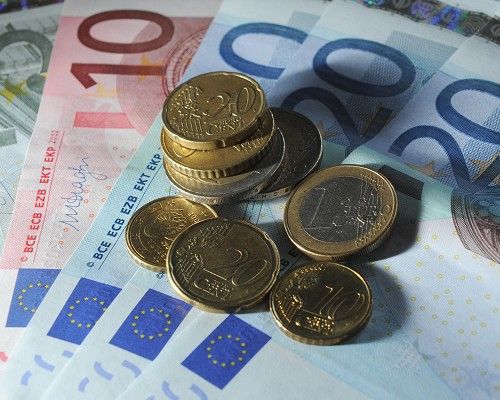

Eurozone interest rates were slashed from 0.25% to 0.15% today as policy makers battle to revive the continent's moribund economy and stave off the threat of deflation.
The European Central Bank (ECB) also cut the overnight deposit rate for lenders that hold money with it from zero to -0.1% - effectively penalising them for hoarding cash and pushing them to lend. It comes after inflation in the 18-nation bloc fell to 0.5% while growth in the first quarter was confirmed at a lacklustre 0.2% and survey data indicated further slowing.
In London, the Bank of England left interest rates on hold at 0.5% despite rumblings that some members of the Monetary Policy Committee were edging closer to voting for a hike.
The cut was widely expected. Howard Archer, chief UK and European economist at IHS Global Insight, said it was "thoroughly justified by the mounting risk of persistent very low eurozone inflation morphing into deflation". The reduction by 0.1% "may be seen on the tentative side", he said.
He added: "Despite being widely anticipated and in some quarters criticised for occurring too late, it is still a bold and unusual move by the ECB to take its deposit rate into negative territory. "
But Schroders European economist Azad Zangana argued against the deposit rate cut.
"We expect banks to simply pass on the costs to households and businesses, either by charging fees for savers, but more likely through higher interest rates on new borrowers - the opposite of what the ECB is trying to achieve."
Carsten Brzeski of ING Bank said the ECB had "entered unchartered new territory in its quest to support the eurozone economy".
"Will it help to kick-start the economy? Probably not, but at least it demonstrates the ECB's determination and ability to act," he said.
Policy makers fear the possibility of the eurozone plunging into a damaging spiral of falling prices, with an unexpectedly sharp drop in inflation to 0.5% in May adding to the threat. Low inflation makes it difficult for individuals and governments who have borrowed money to reduce debts. Deflation can stifle growth as consumers delay spending. Meanwhile, eurozone unemployment remains stubbornly high at 11.7%.
Prospects in Europe, a key trading partner to Britain, are also crucial to domestic economic hopes, with the possibility of further crisis on the continent seen as a risk to the recovery in the UK. The pound edged up against the single currency at 1.23 euros.
Former Bank of England official Andrew Sentance tweeted that it could reach 1.25 euros by the end of the month if minutes of the latest MPC meeting showed some votes for higher rates.
The nine-member committee has been unanimous on maintaining the status quo in recent months. The quantitative easing (QE) programme of asset purchases pumping money into the economy has also stayed on hold at £375 billion.
Signs of healthy growth in the UK have created pressure on the Bank of England to consider when rates should rise.
Comments
Comments on this story express the views of the commentator only, not Bailiwick Publishing. We are unable to guarantee the accuracy of any of those comments.